About Ascension St Francis Hospital
Ascension St Francis Hospital has been providing quality care to the Milwaukee community for over 100 years. We offer a full range of rehabilitative services for adults, elders, men, women, and young adults. Our programs include outpatient and inpatient rehab, aftercare support, partial hospitalization, and cognitive behavioral therapy. We also offer family, group, and individual therapy, as well as recreational therapy. Our goal is to help our patients regain their independence and live productive, fulfilling lives.
Addiction Treatment Programs
Adult Program
An adult program in Wisconsin can help clients make healthier life choices and avoid common mistakes. Whether you need detox, inpatient treatment, or outpatient care, an adult program will offer specific support for your emotional, mental, and social needs.
Senior Rehab
If you’re older and struggling with substance use, consider a senior rehab in Wisconsin. They can help you address your unique challenges and break free from addiction. Whether you need detox, inpatient treatment, or outpatient care, a senior program will offer specific support for your physical, emotional, mental, and social needs.
Men's Rehab
When people join a men’s rehab in Wisconsin, they are able to tackle gender-specific issues while receiving treatment. Whether you need detox, inpatient treatment, or outpatient care, a men’s program will offer specific support for your emotional, mental, and social needs.
Women's Rehab
A women’s rehab in Wisconsin can provide every level of care while addressing the unique needs of women. Whether you need detox, inpatient treatment, or outpatient care, a women’s program will offer specific support for your emotional, mental, and social needs.
Young Adult Rehab
If you’re a young adult struggling with substance use, consider a young adult rehab program in Wisconsin. Whether you need detox, inpatient treatment, or outpatient care, a young adult program will offer specific support for your emotional, mental, and social needs.
Insurance Coverage
Medicaid
How do you pay for rehab in Wisconsin? If you qualify, a good option is Medicaid. Medicaid covers multiple levels of care, and you may have no out-of-pocket costs. However, you’ll need to choose a treatment center that accepts Medicaid.
Private insurance
There are many ways to pay for rehab in Wisconsin. One option is private insurance. Different plans have different coverage levels, so be sure to check with your insurance company for details. You may be responsible for certain costs, such as copayments and deductibles.
Self-pay options
In Wisconsin, you have multiple options for paying for rehab, one of which is self-pay. When you use a medical loan, write a check, or electronically transfer money, you have maximum freedom in choosing the treatment center you prefer.
Financial aid
Those wondering how to pay for rehab in Wisconsin may benefit from looking for financial aid programs. Paying for detox, inpatient rehab, or outpatient care is much easier if you get a grant or scholarship from the center or a local non-profit or community organization.
Medicare
Paying for rehab in Oklahoma can be done in multiple ways, including using Medicare. You may have out-of-pocket costs such as a deductible or copay, and you’ll want to look for a treatment center that accepts your Medicare coverage.
Military insurance
If you have military insurance in Wisconsin, you can use your coverage to help pay for rehab treatment. Because plans vary, be sure to contact the insurer to find out what centers are in-network with your coverage and to find out what out-of-pocket costs you might be responsible for.
Employee Assistance Program
Levels of Care
- 1
Inpatient Rehab
During inpatient treatment in Wisconsin, clients receive evidence-based treatment while living full-time at the facility. During inpatient treatment, clients are able to work on their recovery through counseling, activities, and holistic treatment like mindfulness, art therapy, and more.
- 2
Outpatient Rehab
Outpatient treatment in Wisconsin can provide a great way to practice and reinforce new habits formed in residential rehab programs. Building a new life for yourself takes time, and it’s important to have enough support throughout the process. Outpatient treatment allows you to have more intensive or less intensive help, depending on your needs.
- 3
Aftercare Support
It’s easy to wonder what’s next after treatment, but fortunately, aftercare in Wisconsin can provide ongoing support. Some aftercare programs will help you connect to community resources and social services in your area, from housing to healthcare to financial assistance.
- 4
Partial Hospitalization Program
Partial hospitalization programs (PHPs) in Wisconsin are led by professionals who provide intensive daily treatment, but you live at home or in a sober living facility outside the sessions. PHPs provide focused therapy up to 20 hours per week that allows you to understand the roots of substance use, learn healthy coping skills, and create a new life.
Therapies
Cognitive Behavior Therapy
The goal of cognitive behavioral therapy (CBT) in Wisconsin is to address negative thinking patterns to create positive change. Substance use treatment includes detox, inpatient treatment, and outpatient care, and CBT may be a part of each of these stages. The goal is to help clients identify disorted thinking, replace it with rational thinking, and change their response accordingly.
Family Therapy
Family therapy in Wisconsin can address conflicts in your family so your loved ones can help provide encouragement, support, and accountability as you work through substance use treatment. There are several goals in family therapy. Some sessions may be focused on specific past events, while others address current broken relationships or how good intentions have gone astray. Over time, family relationships can be restored, making recovery easier.
Group Therapy
Group therapy in Wisconsin can provide encouragement, support, and accountability as you work through substance use treatment. Substance use treatment includes detox, inpatient treatment, and outpatient care, and group therapy may be a part of each of these stages. The goal is to help clients support each other, provide accountability, and relate to each other’s experiences.
Individual Therapy
During individual therapy in Wisconsin, clients have a confidential environment to work through their struggles with a professional. Some of the topics covered in individual therapy include developing healthy coping skills, addressing past events that may have played a part in substance use, and building a support network.
Recreational Therapy
Sometimes the best way to learn is by doing. Recreational therapy in Wisconsin is a holisitic therapy that can allow you to build positive relationship, learn communication skills, and ask others for help when needed. During recreational therapy, you’ll participate in games, obstacle courses, nature exposure, and more, so that you can learn healthy relationship-building and gain confidence in your ability to overcome challenges.
Accreditations
Location
Contact Ascension St Francis Hospital
Top Drug Rehab Centers in Wisconsin
-
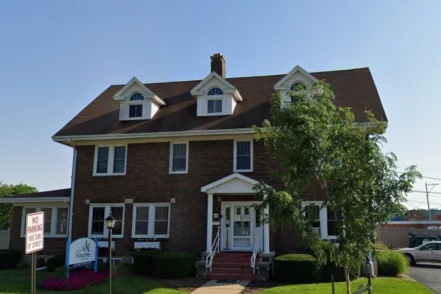 Wisconsin
WisconsinJackie Nitschke Center Inc
630 Cherry Street Green Bay, Wisconsin 54301
-
 Wisconsin
WisconsinWisHope Recovery
4739, 223 Wisconsin Ave, Suite A Waukesha, Wisconsin 53186
-
 Wisconsin
WisconsinBurkwood Treatment Center
615 Old Mill Road Hudson, Wisconsin 54016
-
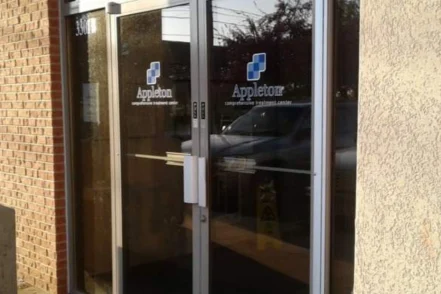 Wisconsin
WisconsinAppleton Comprehensive Treatment Center
3301 North Ballard Road, Suite B Appleton, Wisconsin 54911
-
 Wisconsin
WisconsinBlandine House 25 North Park Avenue
25 North Park Avenue Fond du Lac, Wisconsin 54935
-
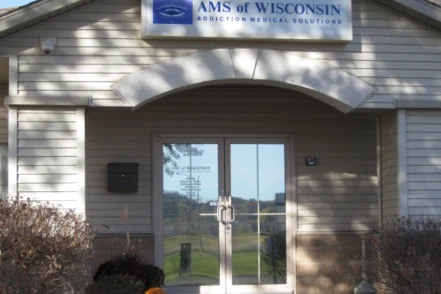 Wisconsin
WisconsinAMS
9532 East 16 Frontage Road Onalaska, Wisconsin 54650
-
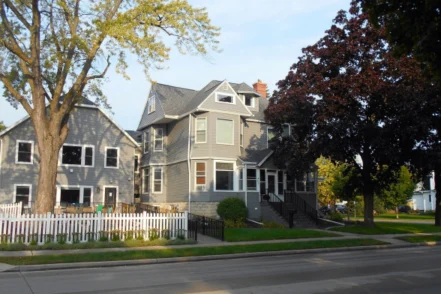 Wisconsin
WisconsinBeacon House
166 South Park Avenue Fond du Lac, Wisconsin 54935
-
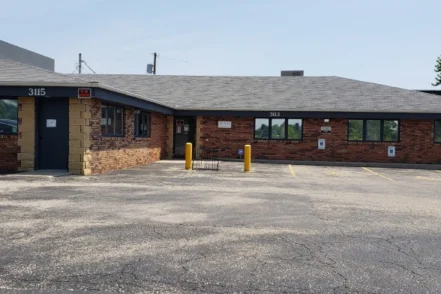 Wisconsin
WisconsinPsychological Addiction Services
3113 East Washington Avenue Madison, Wisconsin 53704
-
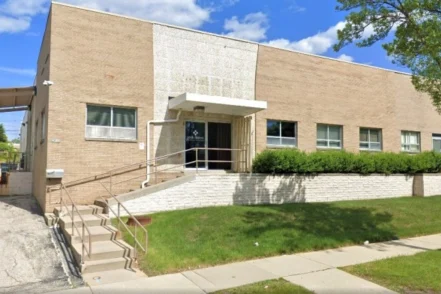 Wisconsin
Wisconsin10th Street Comprehensive Treatment Center
4800 South 10th Street Milwaukee, Wisconsin 53221
-
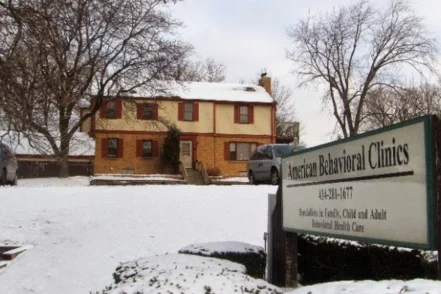 Wisconsin
WisconsinAmerican Behavioral Clinic West Layton Avenue
7330 West Layton Avenue Milwaukee, Wisconsin 53220
